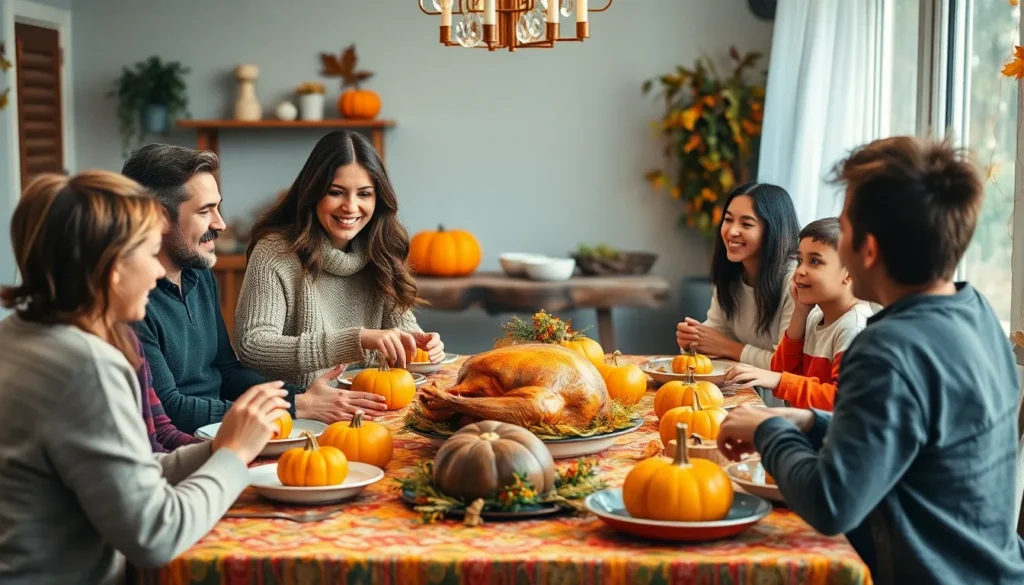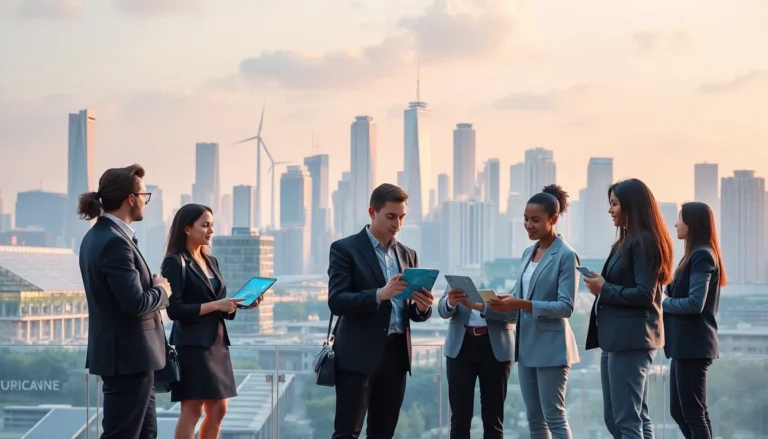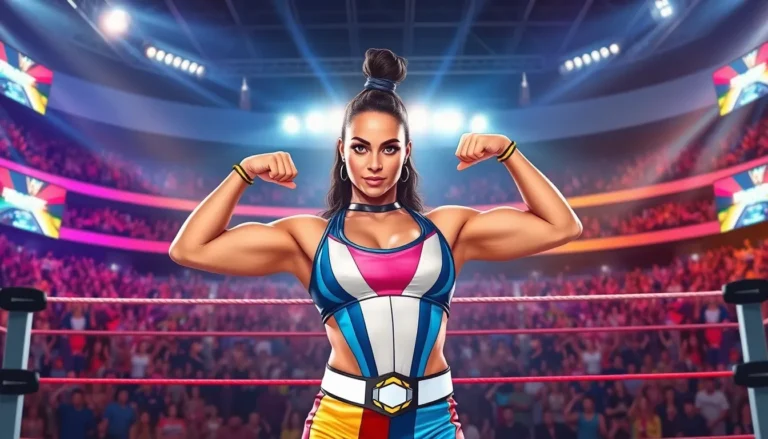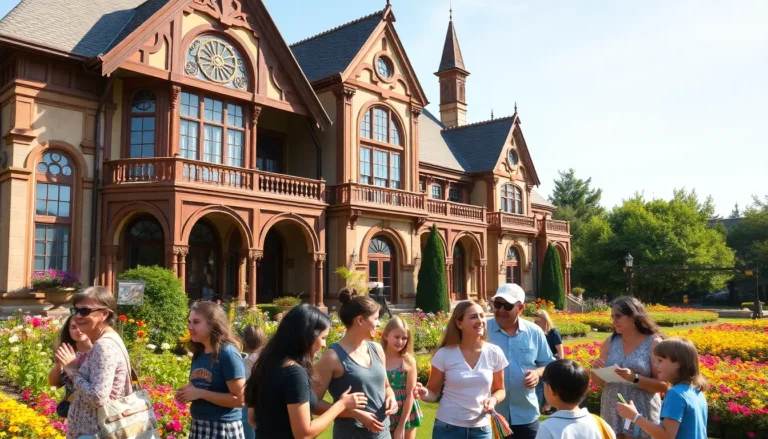Table of Contents
ToggleHolidays—those magical times when calendars get a little more colorful and our wallets a little lighter. But have you ever stopped to wonder how these cherished celebrations evolved from ancient rituals to the Instagram-worthy gatherings we know today? It’s a fascinating journey filled with quirky traditions and unexpected twists that could rival any soap opera plot.
From the wild feasts of yesteryear to the cozy family gatherings of today, holidays have transformed in ways that would make even the most seasoned historian raise an eyebrow. As society shifts and trends change, so too do the ways we celebrate, making every holiday a unique reflection of our culture. So grab a cup of cocoa, put on your favorite festive sweater, and let’s dive into the delightful evolution of holidays—because who wouldn’t want to know how their favorite excuse for cake came to be?
The Concept of Holidays
Holidays serve as pivotal markers in human culture and society. They embody rituals, traditions, and values that reflect collective identity.
Cultural Significance
Cultural significance dictates the very nature of holidays. Many holidays unite communities through shared rituals, fostering a sense of belonging. Diverse cultures celebrate unique observances that highlight their heritage. For example, Diwali emphasizes light prevailing over darkness in Indian culture. Celebrations like Thanksgiving encourage gratitude and togetherness among families. Holidays also offer opportunities for cultural exchange, enabling understanding among different groups.
Historical Background
Historical background provides context for the evolution of holidays. Ancient societies celebrated seasonal changes, agricultural milestones, or religious events. They marked the solstices and equinoxes, laying foundations for contemporary festivities. Events like the Roman Saturnalia influenced modern Christmas traditions. Over centuries, colonization and globalization altered holiday practices worldwide. Civil rights movements also spurred the recognition of new holidays, reflecting evolving societal values. A variety of influences continues to shape how holidays are observed today, blending tradition with modernity.
Factors Influencing the Evolution of Holidays
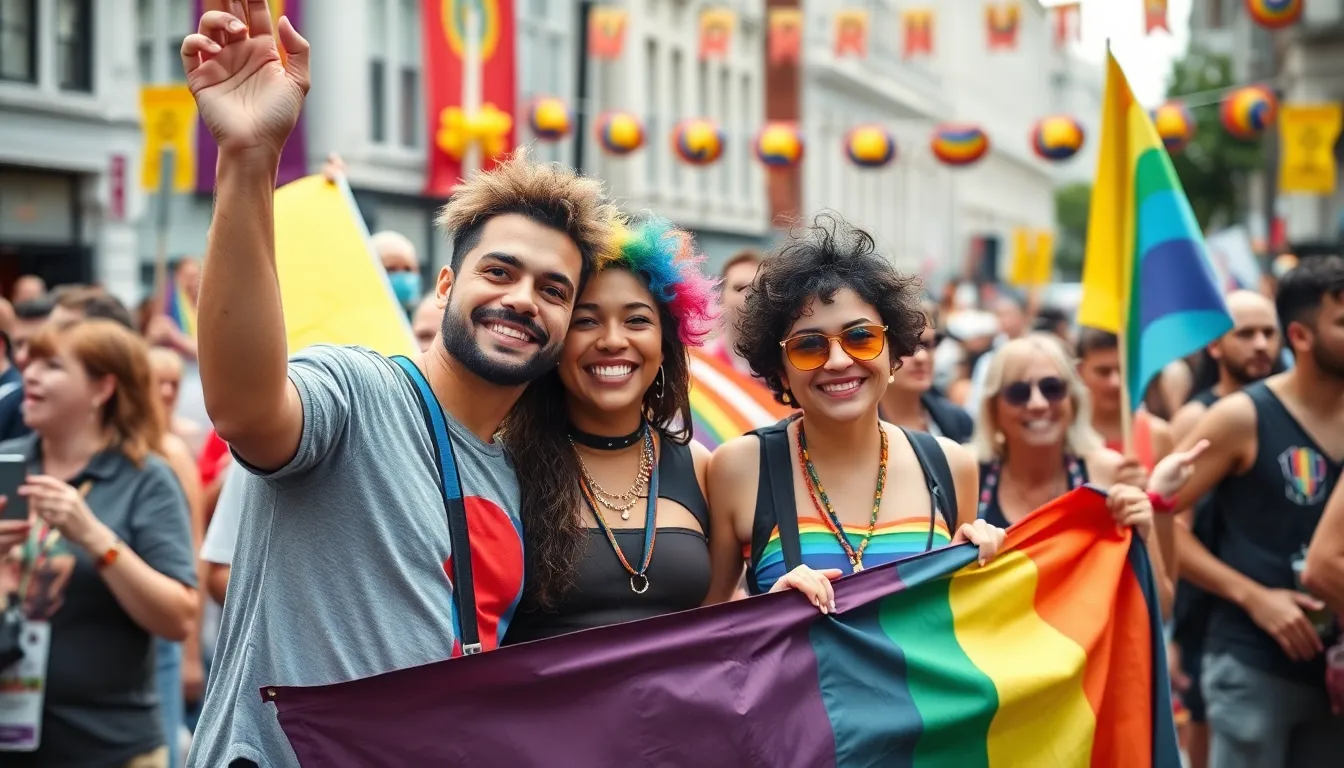
Holidays evolve due to various factors, shaping how people celebrate. Societal changes and technological advancements play significant roles in this transformation.
Social Changes
Social changes drive the evolution of holidays. New values and beliefs often emerge, leading to fresh traditions. For instance, increased awareness of inclusivity has influenced celebrations like Pride Month. Communities celebrate diversity through parades and events. Major events, such as the civil rights movement, pushed for recognition of holidays reflecting equal rights. Shifting demographics also affect holiday observances, with families blending various cultural practices. Traditional holidays adapt to accommodate modern lifestyles, creating a unique blend that resonates with contemporary society.
Technological Advancements
Technological advancements have a profound impact on holiday celebrations. Communication technologies allow families and friends to connect across distances during holidays. Virtual gatherings gained immense popularity, especially during global events like the COVID-19 pandemic. Social media platforms create new ways to share holiday experiences, adding an interactive layer to celebrations. Enhanced entertainment options, such as streaming services, provide accessible festive content. E-commerce simplifies shopping for holiday gifts, expanding the reach of various holiday traditions. Thus, technology continually reshapes how individuals engage with and experience their cherished holidays.
Regional Variations in Holiday Celebrations
Regional differences significantly shape holiday celebrations worldwide. Variations reflect local customs, traditions, and values, creating unique experiences for participants.
Traditional Practices
Traditional practices vary widely across regions. In India, Diwali features vibrant lights and communal feasts, emphasizing the triumph of light over darkness. Mexico celebrates Día de los Muertos with altars and offerings for deceased loved ones, showcasing a deep respect for ancestry. In the U.S., Thanksgiving centers on family gatherings and a shared meal of turkey and stuffing, highlighting gratitude and community. Each practice offers a glimpse into cultural values, reinforcing connections among community members through rituals and shared experiences.
Modern Adaptations
Modern adaptations of holidays often incorporate contemporary elements. In multicultural societies, holidays blend various cultural influences, creating hybrid celebrations. For instance, Christmas in the U.S. has adopted elements from different traditions, such as Las Posadas from Hispanic cultures, enriching the festive spirit. Additionally, technological advancements, such as virtual gatherings during holidays, allow people to connect regardless of location. Social media amplifies holiday greetings and celebrations, fostering shared experiences across distances. These adaptations reflect evolving societal norms while maintaining the essence of traditional customs.
The Role of Globalization in Holiday Evolution
Globalization significantly shapes how holidays evolve, introducing new traditions and practices across cultures.
Influence of Other Cultures
Cultural exchange plays a key role in the evolution of holiday celebrations. Festivals like Christmas now incorporate customs from various cultures, including Hispanic traditions in U.S. celebrations. Similarly, Halloween has seen influences from ancient Celtic rituals and modern marketing, blending the old with the new. Diwali and Thanksgiving share ideas of community and gratitude across different backgrounds. New traditions emerge as diverse groups interact, allowing holidays to reflect a richer tapestry of cultural heritage. Reinforcing these connections enhances a sense of belonging and shared identity in a globalized world.
Commercialization of Holidays
Commercialization transforms holiday celebrations into major economic events. Retailers often leverage holidays for marketing campaigns, leading to increased consumer spending. For instance, Black Friday now marks a significant shopping day right after Thanksgiving, igniting a season of commerce. Brands capitalize on festivities, creating themed products and advertisements that resonate with consumers. E-commerce further magnifies this effect, making it easier to purchase holiday-related items. Such commercialization influences how people celebrate, sometimes shifting focus from tradition to consumption. A growing awareness of this trend prompts discussions about preserving the true essence of holidays amid the commercial rush.
Holidays continue to evolve as they adapt to the changing dynamics of society. Each celebration reflects a blend of tradition and modernity showcasing the diverse influences that shape cultural practices. As communities embrace new values and technologies the essence of holidays remains intact while their expressions transform.
This evolution not only enriches the way people celebrate but also fosters connections among individuals from different backgrounds. By recognizing the significance of these changes it’s possible to appreciate the deeper meanings behind each holiday. Ultimately the journey of holidays illustrates humanity’s ability to celebrate life while honoring the past.

